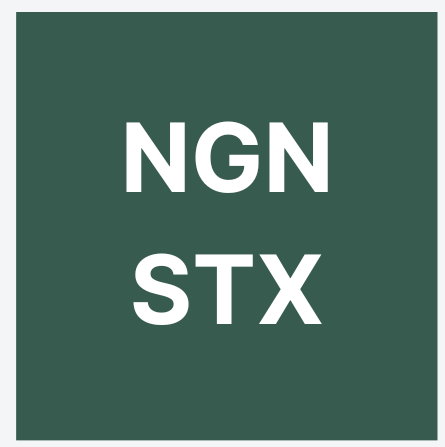In Nigeria, wealth often feels like a race. Tech bros chase funding rounds. Crypto traders sprint between pumps. Real estate speculators talk in square meters to sound sophisticated. But in 2021, I took a different route.
I was a student with a ₦32,000 monthly allowance. My entry into investing didn’t come from a finance seminar or Twitter thread. It came from curiosity. I liked what Wema Bank was doing at the time. They were lean, agile, and talking like a bank that understood digital.
“Is Wema Bank listed?” I typed on Google. The answer was yes. Next question: “How do I buy their shares?”
That’s how I found a retail-facing investment platform. I signed up, and with ₦15,000, I bought my first shares. They were around ₦3.20 per unit. Possibly less. I didn’t even calculate how many shares I bought until weeks later. I wasn’t chasing quantity. I just wanted to start.
I’ve never sold those shares.
A Philosophy Built on Holding
That first decision; to buy and hold, is the backbone of how I invest today. It wasn’t planned, but it shaped my entire approach.
I didn’t buy Wema to flip it. I didn’t refresh my app every hour waiting for the green line to jump. I bought it because I believed in it. Because I thought, “If this money sits here for three years, that’s fine.”
That belief grew into a pattern. Soon after, MTN launched a campaign offering free shares to Nigerian women. I wasn’t eligible for the free units, but the campaign drew my attention to MTN’s listing. I read about them. Understood their dominance in telecoms, their push into fintech, and their overall relevance in Africa’s economic story. I bought in.
Since then, I’ve slowly built a portfolio. Not for speed, but for safety. Not to gamble, but to store value.
What I’ve Learned: You Don’t Need to Be an Expert to Invest
There’s a myth that only analysts should pick stocks. That you need CFA-level analysis to make smart calls. That myth keeps too many Nigerians out of the market.
I’m not a finance professional. I’ve never opened a Bloomberg terminal. But I follow five personal rules that have worked for me and for many of the friends I’ve brought into the market over time:
- Understand the business. If you can’t explain what the company does in a sentence, walk away. Even Dangote said this in his MTV Base interview.
- Check the history. If the 5-year chart shows steady, not erratic growth, that’s a good sign.
- Read the reports. You don’t need to understand everything. Just look for revenue and profit direction.
- Follow the sentiment. Twitter finance, Nairametrics, investor forums. See what others are seeing.
- Ask yourself: would I regret holding this for five years? If not, you’re in a safe zone.
This mindset helps filter hype from fundamentals. It trains patience. And patience, in investing, often beats brilliance.
The finance bros can do the accurate math to keep their YOY portfolios in the green, but you’re a retail investor parking money for 5- 8 years just to store value and watch your money grow at a somewhat steady pace.
The Sectors I Trust with My Money
Over time, I’ve built a philosophy around sectors. I’m not overly diversified. I don’t believe in buying “a little bit of everything.” I believe in choosing categories that underpin the economy, categories that can weather storms, and companies that show up in Nigeria’s everyday story.
1. Banks
Start with the FUGAZ group. First Bank, UBA, GTCO, Access, Zenith. They’re not exciting, but they’re stable. They pay dividends. They stay in business. In a country where policy changes and volatility are the norm, these institutions have figured out how to remain relevant.
I also look at Tier 2 banks: Fidelity, Stanbic IBTC, Wema, and FCMB. They have growth potential, less attention, and often stronger customer intimacy. Wema, for example, has outperformed expectations with tech-driven retail banking.
2. Telecoms
MTN and Airtel are not just mobile networks. They’re infrastructure, logistics, and increasingly—finance. MTN’s push into mobile money, backed by license approvals and market dominance, makes them essential to watch.
3. Energy
I tread carefully here. Nigeria’s oil and gas sector is noisy and politically charged. I only consider companies like Seplat with audited accounts, low debt risk, and proven track records. Oando, with its history of delayed filings and leadership drama, is a red flag for me.
My Personal Watchlist Structure (2024)
Everyone needs a watchlist. It filters noise and prevents impulse buys. If I were building a fresh watchlist today, I’d group stocks into the following categories:
- Banks – FUGAZ and SWEFF (Stanbic, Wema, Ecobank, Fidelity, FCMB)
- Non-Bank FIs – United Capital, Afriprud
- Insurance – Only dividend-paying tickers
- Other Services – NAHCO, MTN
- Special Manufacturing – Shortlist of niche, low-leverage producers
- Oil & Gas – Very selective, mostly Seplat & Aradel
- Agro – A two-company industry; easier to monitor. Okomu & Preston
- Others – Only if dirt cheap and low risk.
From this watchlist, I build my portfolio to align with my income flow, my goals, and my level of risk tolerance.
How I Read Financial Reports Without Drowning
You don’t need to understand every figure in a company’s earnings report. Just focus on the signals:
For quarterly reports:
- Revenue growth: quarter-on-quarter and year-on-year
- Net profit trajectory
- EPS (Earnings per Share)
- Cost vs. revenue movement
- Notes on forex losses, impairments, or restructuring
For annual reports:
- Dividend payment consistency
- Long-term debt and its purpose
- Management letters (especially CEO and chairman messages)
- Auditor’s commentary: especially if something is flagged
When a company is honest in its reporting and consistent in its payouts, it earns trust. That’s more valuable than hype.
Reading the News Without Losing Your Head
The Nigerian market reacts to news. Some hate it when it doesn’t seem so. That’s because not all news is signal.
I treat as good signs:
- Mergers and acquisitions (especially with a logic behind them)
- Regulatory licenses or product launches
- Foreign investment inflows
- Public debt restructuring in the company’s favor
I treat as red flags:
- Boardroom exits (especially sudden resignations)
- Auditor disputes or changes
- Repeated regulatory sanctions
- Delayed filings or unexplained silence
My rule is simple. If the news is noisy and the business is intact, I hold or buy more. But if the news exposes a structural problem in the business, I sell, even at a loss.
Final Words: This Is What Slow Wealth Looks Like
I still hold the first stock I ever bought. That ₦15,000 purchase in 2021 became a ritual. Every few months, I buy a little more of something I understand, trust, and can defend. I’ve taught others how to do the same—not with a spreadsheet, but with a story.
The NGX is not a fast track to wealth, but it can be a quiet, steady place to grow what you have. And in a country where inflation eats savings, that’s worth a lot.
Not all investing is about winning. Sometimes, it’s just about not losing. And for me, that’s what the Nigerian Stock Exchange offers: a way to protect my money, build slowly, and stay sane in a world obsessed with speed.
Follow how the money moves through the capital market through our Twitter and mailing list. Also see guidelines to join our community or submit an article!

Marketing Manager full time, finance enthusiast off the clock.


